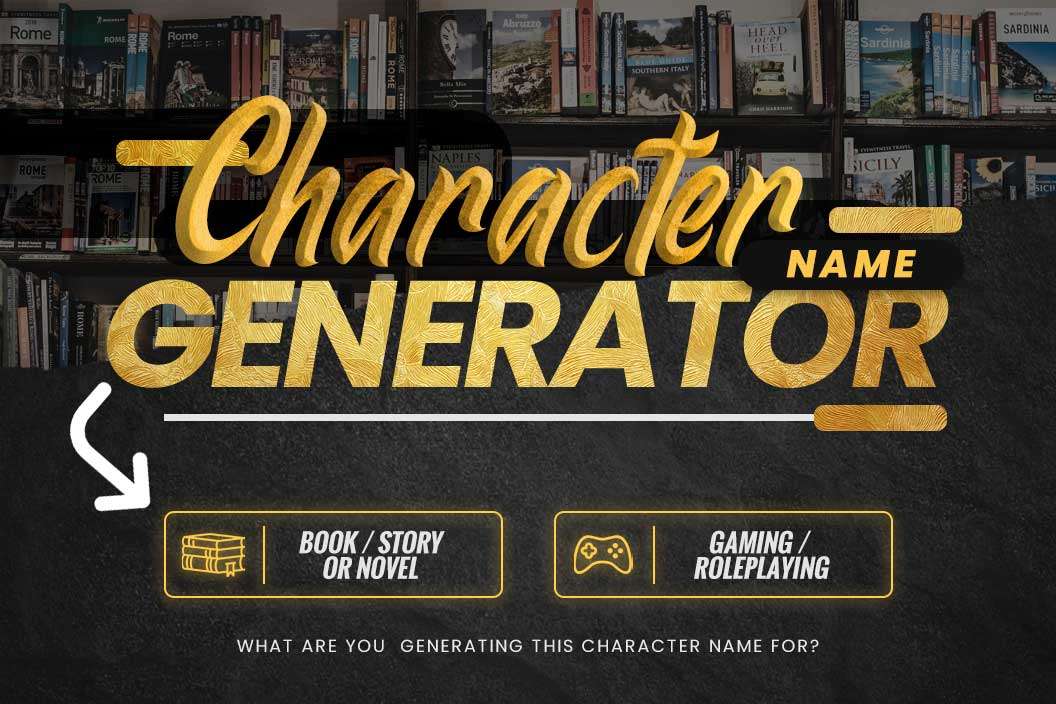A great writer knows a story can be made or broken by word choice, and character names are no exception. On both a conscious and subconscious level, the names you choose reverberate with readers. They have the ability to express meaning explicitly or through secret messages. That being said, coming up with character names is one of the most essential tasks in writing. If you’re in a bind, check out or FREE Character Name Generator– the only tool you need to generate the perfect character names in your story!
How to Use the Free Character Name Generator
Our FREE Character Name Generator is an interactive tool that helps you get the perfect character name for your story.
In the dropdown menu, there are several categories that will help you specify the kind of name that you need:
- Species
-Human
-Animal
-Other
- Gender
-Female
-Male
-Neutral
- Period
-Ancient
-Modern
-Futuristic
-Old-fashioned
- Genre
- Starts With Letter
Simply choose the option you prefer and click the Generate button to see what character name you come up with.
Yes, it’s that simple and easy to use!
Don’t like the name? Just hit the Generate button several times until you see the character name that you like!
Tips for Creating Character Names
Here are some tips and tricks to help you land the perfect character name in your story or novel:
- Give your characters names that not only start with different letters but sound as diverse as possible. For example, Ben and Jacqueline are going to be easier to remember than Ben and Jennifer.
- Decide whether your character will be referred to by his full name, nickname, first name, or surname.
- Aim for combinations of unusual names, but don’t get too bizarre. “Velvet” sounds like furniture more than a person, and Shanda Crystal Lear doesn’t sound appealing. Keep your character names realistic.
- Stop using the nickname and then using the character’s nickname as you move on the story because this confuses readers. Be consistent.
- Try to make the character say something about the name. Think of Louisa May Alcott ‘s book Little Women, and the family of girls. Beth was the gentle, quiet daughter; Jo, the strong, boisterous one; and Amy, the family’s baby.
- Only change a name for a good reason. A man called John by his friends might, for example, be Jonathan to his starchy mother, and Mr. Pierce to the babysitter. According to their characterization, this makes sense, but don’t have the babysitter call him Mr. Pierce for one minute and John for the next.
- Use our FREE CHARACTER NAME GENERATOR to provide different names for the story characters. If Polly and Paul are in the same story, or even Robert and Rebecca, it will be hard for the readers to remember their names.
If you’re looking for more random name generators for your fiction, check out our collection of Fiction Name Generators here.
Also save time and money with our online book mockup generator and chapter titles generator.


